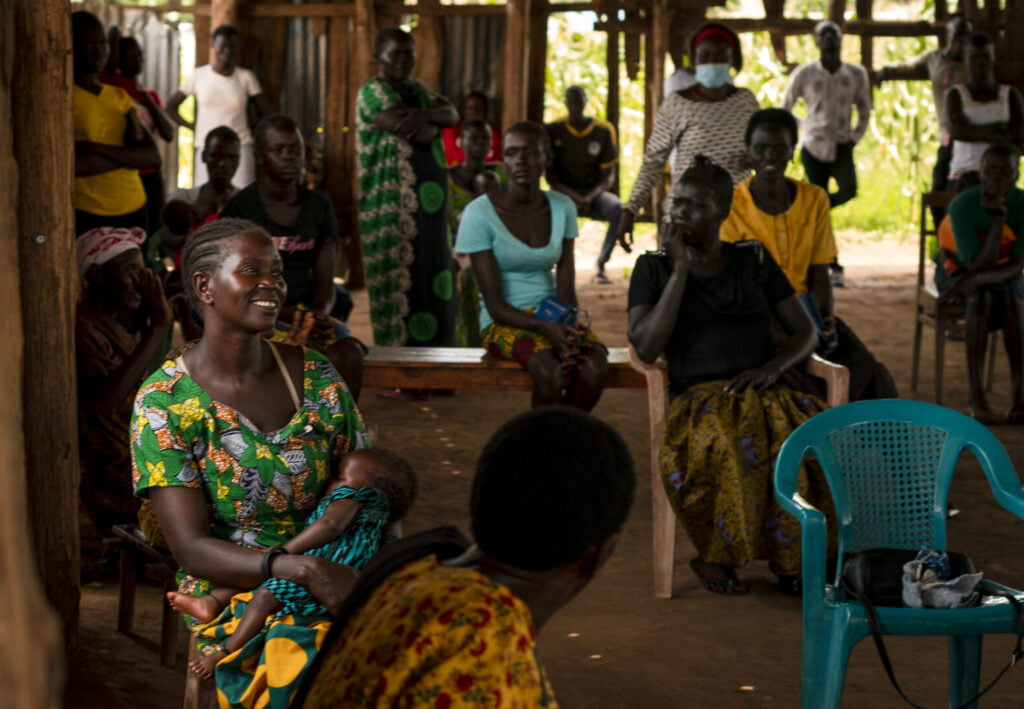Food Security & Climate Change
Adapting to climate change with conservation agriculture


Many people in developing countries rely on agriculture for their livelihoods. Climate change can disrupt traditional farming practices, leading to reduced crop yields, livestock losses and decreased income, as well as reduced food security. Climate change and food insecurity can lead to ecosystem degradation and loss of biodiversity. Implementing food security and climate change projects in developing countries is crucial as these initiatives address interconnected challenges that have far-reaching implications for both local communities and the global population.
By implementing projects that promote sustainable land use, water management and conservation, communities can protect their natural resources for future generations. Food security and climate change projects can help build resilience and provide alternative livelihood options. They focus on adaptation strategies to help communities cope with changing environmental conditions. This may include introducing climate-resilient crop varieties, implementing water conservation practices, and adopting sustainable land management techniques.
In 2022-2023, 124,364 small-scale farmers (56,134 women, 46,800 men, 12,743 girls and 8,687 boys) and their family members have participated in food security and climate change project activities.

South Sudan
In South Sudan, people are returning home following years of conflict. The project “Improving Food Security and Livelihoods of Crisis-Affected People in Yei County, South Sudan” is supporting returnees as well as members of the host community with agricultural training and farming inputs:
- 200 small-scale farmers (150 women and 50 men) participated in vocational training for livelihood diversification;
- 1,000 returnee households received monthly cash transfers of $130 for four months to assist them in re-establishing their livelihoods;
Seeds and tools were distributed to 3,000 households:
- Vegetable seeds: 100 kg of okra, 20 kg of tomato, 20 kg of onion, 20 kg of amaranth, 20 kg of cabbage, 20 kg of eggplant and 20 kg of collard
- Crop and cereal seeds: 9 metric tonnes of sorghum, 15 MT of maize, 6 MT of beans
- Farming Tools: 3,000 weeding hoes, 3,000 of hand hoes, 30 pedal pumps for irrigation and 2 power tillers
- 430 farmers (190 women, 240 men) participated in training on off-season growing techniques; compost use; integrated pest management; post-harvest methods; seed preservation; conservation agriculture; mulching; and crop rotation techniques.

Tanzania
In Tanzania, people living in the Nyarugusu Refugee Camp have limited access to livelihood opportunities. The “Vegetable Production in Nyarugusu Refugee Camp” project is providing agricultural training and farming inputs to improve their food security and opportunities to sell their excess produce:
- 810 farmers (699 female, 111 male) completed training on gender equality, nutrition and dietary diversity, composting, mulching, integrated pest management, seed preservation, marketing and other aspects of year-round vegetable production;
Following the training, farmers received:
- Tools: hand hoes, hand sprayer pumps, rakes and watering cans;
- Seeds: 20.25 kg of amaranth, African nightshade, kale, spinach, onion, African eggplant and black beauty eggplant vegetable seeds;
- Tree seedlings: 4,147 neem, 3,607 Spanish cedar, 5,685 papaya, 2,195 passionfruit, 4,082 avocado, 169 mango, 464 moringa and 2,865 Siamese cassia tree seedlings to increase fruit and timber production.